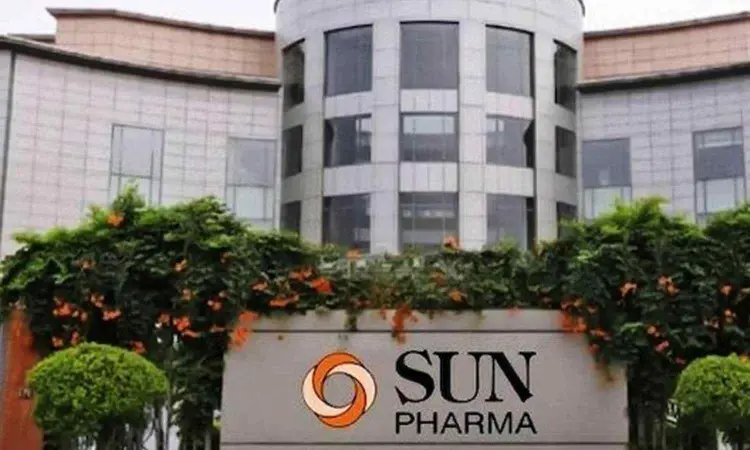- Home
- Medical news & Guidelines
- Anesthesiology
- Cardiology and CTVS
- Critical Care
- Dentistry
- Dermatology
- Diabetes and Endocrinology
- ENT
- Gastroenterology
- Medicine
- Nephrology
- Neurology
- Obstretics-Gynaecology
- Oncology
- Ophthalmology
- Orthopaedics
- Pediatrics-Neonatology
- Psychiatry
- Pulmonology
- Radiology
- Surgery
- Urology
- Laboratory Medicine
- Diet
- Nursing
- Paramedical
- Physiotherapy
- Health news
- Fact Check
- Bone Health Fact Check
- Brain Health Fact Check
- Cancer Related Fact Check
- Child Care Fact Check
- Dental and oral health fact check
- Diabetes and metabolic health fact check
- Diet and Nutrition Fact Check
- Eye and ENT Care Fact Check
- Fitness fact check
- Gut health fact check
- Heart health fact check
- Kidney health fact check
- Medical education fact check
- Men's health fact check
- Respiratory fact check
- Skin and hair care fact check
- Vaccine and Immunization fact check
- Women's health fact check
- AYUSH
- State News
- Andaman and Nicobar Islands
- Andhra Pradesh
- Arunachal Pradesh
- Assam
- Bihar
- Chandigarh
- Chattisgarh
- Dadra and Nagar Haveli
- Daman and Diu
- Delhi
- Goa
- Gujarat
- Haryana
- Himachal Pradesh
- Jammu & Kashmir
- Jharkhand
- Karnataka
- Kerala
- Ladakh
- Lakshadweep
- Madhya Pradesh
- Maharashtra
- Manipur
- Meghalaya
- Mizoram
- Nagaland
- Odisha
- Puducherry
- Punjab
- Rajasthan
- Sikkim
- Tamil Nadu
- Telangana
- Tripura
- Uttar Pradesh
- Uttrakhand
- West Bengal
- Medical Education
- Industry
Sun Pharma Lab gets CDSCO Panel nod to conduct Phase III CT of Semaglutide solution for injection

New Delhi: The Subject Expert Committee (SEC) functional under the Central Drug Standard Control Organisation (CDSCO) has granted approval to the drug major Sun Pharma Labs to conduct the Phase III clinical trial of Semaglutide solution for injection (Synthetic origin) 0.25 mg/0.5 ml, 0.5 mg/0.5 ml, 1 mg/0.5 ml, 1.7 mg/0.75 ml, and 2.4 mg/0.75 ml.
This came after Sun Pharma Labs presented the amended Phase III clinical trial protocol for weight management before the committee.
Furthermore, the expert panel suggested changes in the CT protocol that the treatment with glucose-lowering agents (s) within 90 days before screening should be removed from the exclusion criteria for non-diabetic patients and retinal examination (fundoscopy) should be done at each visit.
Semaglutide is a glucagon-like peptide 1 receptor agonist used to improve glycemic control in type 2 diabetes mellitus, treat obesity, and reduce the risk of major adverse cardiovascular events in selected adults.
GLP-1 is a physiological hormone that promotes glycemic control via several different mechanisms, including insulin secretion, slow gastric emptying, and reducing postprandial glucagon secretion. The homeostasis of glucose is dependent on hormones such as insulin and amylin, which are secreted by the beta cells of the pancreas. Semaglutide is 94% similar to human GLP-1. Analogs of this hormone, such as semaglutide, stimulate the synthesis of insulin by stimulating pancreatic islet cells and reducing glucagon secretion. They directly bind with selectivity to the GLP-1 receptor, causing various beneficial downstream effects that reduce blood glucose in a glucose-dependent fashion.
In hypercholesterolemia, semaglutide is believed to reduce the progression of atherosclerosis via decreased gut permeability and decreased inflammation. Weight loss is believed to occur via the reduction of appetite and food cravings after semaglutide administration.
At the recent SEC meeting for endocrinology and metabolism held on 13 January 2025, the expert panel reviewed the amended Phase III CT protocol for weight management.
After detailed deliberation, the Committee recommended a grant of permission to conduct a Phase III CT study with the following changes in the CT protocol:
Treatment with glucose-lowering agents (s) within 90 days before screening should be removed from the exclusion criteria for non-diabetic patients.
Retinal examination (fundoscopy) should be done at each visit.
Furthermore, the expert panel suggested the firm submit a bioequivalence (BE) study report to CDSCO and the BE report should be evaluated by the committee before the initiation of the Phase-III clinical trial.
Doctor of Pharmacy
Dr. Divya Colin, a Doctor of Pharmacy Graduate with extensive experience in clinical and hospital settings and confidently equipped with diagnostic and therapeutic skills. She also has spread out exposure to Oncology Departments in Mysore Medical College and Research Institute as Oncology Pharmacist. Currently she is building a career in clinical research and clinical data management. She has been a part of Medical Dialogue since January 2022.
Dr Kamal Kant Kohli-MBBS, DTCD- a chest specialist with more than 30 years of practice and a flair for writing clinical articles, Dr Kamal Kant Kohli joined Medical Dialogues as a Chief Editor of Medical News. Besides writing articles, as an editor, he proofreads and verifies all the medical content published on Medical Dialogues including those coming from journals, studies,medical conferences,guidelines etc. Email: drkohli@medicaldialogues.in. Contact no. 011-43720751


